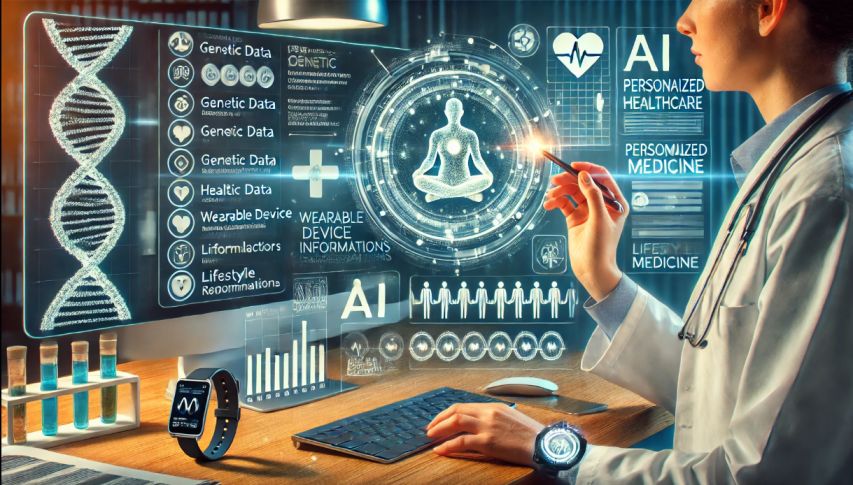
AI and the Future of Personalized Healthcare
The promise of personalized medicine has long been a dream in the medical world. The idea that treatments could be customized to each patient’s unique genetic makeup, lifestyle, and environment offers hope for more effective care and better outcomes. Yet for years, this vision remained just out of reach, hindered by the complexity of data analysis and the sheer volume of information that would need to be processed for each individual case. Now, with the advent of artificial intelligence, personalized healthcare is not only possible—it’s becoming a reality, and Nexarm is leading the charge.
Understanding Personalized Medicine
Personalized medicine is built on the principle that no two patients are the same. Factors such as genetics, age, lifestyle, and even geographic location can all affect how a person responds to treatment. Traditional medical approaches, while effective, often rely on broad-based treatment protocols that don’t account for these individual differences. AI changes that by offering the ability to analyze massive amounts of data at scale, ensuring that doctors can consider all relevant factors when crafting a treatment plan.
Nexarm’s AI technology takes this concept to the next level
By integrating data from multiple sources—electronic health records, genomic data, wearable devices, and even social determinants of health—Nexarm creates a detailed profile of each patient. This profile can then be used to generate personalized treatment recommendations, optimizing care for each individual. But as exciting as this technology is, it raises some uncomfortable questions. How much should we trust AI with such critical decisions? And what happens if the data isn’t perfect?
AI as a Double-Edged Sword
While AI holds the promise of personalized care, it’s not without its risks. AI systems are only as good as the data they’re trained on, and medical data is far from flawless. Errors in patient records, gaps in data, and even biases built into the algorithms themselves could lead to unintended consequences. Imagine an AI system that incorrectly flags a patient as low-risk based on incomplete data, leading to delayed treatment for a life-threatening condition. It’s a chilling thought, but one that must be acknowledged as AI continues to play a greater role in healthcare.
The Role of Physicians in AI-Driven Care
Even as AI becomes more prevalent, the human element of medicine remains irreplaceable. Physicians are not just diagnosticians; they are also caregivers, communicators, and advocates for their patients. While AI can assist in processing data and offering insights, it’s ultimately up to doctors to interpret that information and make informed decisions based on their clinical judgment. In the context of personalized medicine, this balance between AI and human expertise is especially important. Nexarm aims to enhance, not replace, the role of healthcare providers, empowering them with the tools they need to make better decisions while still maintaining the personal connection with patients that is so crucial to effective care.
A Look to the Future
As AI technology continues to advance, the potential for personalized healthcare will only grow. In the near future, we may see AI systems that can predict diseases before symptoms even appear, recommend lifestyle changes to prevent illness, or tailor treatments to a person’s unique genetic profile. Nexarm is at the forefront of this revolution, working to bring personalized healthcare to practitioners around the world. But as we move forward, we must also remain vigilant, ensuring that AI is used responsibly and ethically in the care of human lives.
Personalized medicine powered by AI has the potential to change the way we approach healthcare, but it is not a panacea. It requires careful implementation, ongoing oversight, and a strong commitment to patient-centered care. At Nexarm, we believe that AI can be a force for good in the medical world, but we also recognize the challenges and risks that come with it. Together, we can create a future where healthcare is not just more efficient, but more personalized, more compassionate, and more effective.
